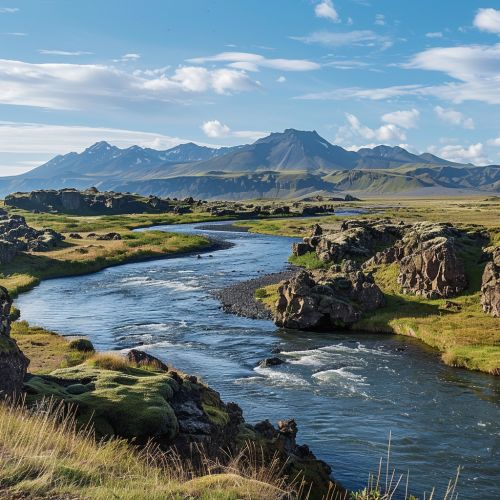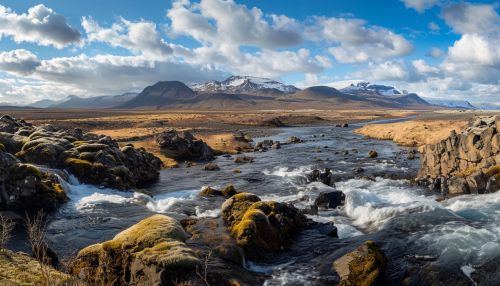Iceland
Geography
Iceland is a Nordic island country located in the North Atlantic Ocean. It is the most sparsely populated country in Europe, with an area of 103,000 square kilometers and a population of approximately 356,991. The country is characterized by its dramatic landscape, which includes geysers, hot springs, waterfalls, and volcanoes. The capital and largest city is Reykjavík, which is home to over two-thirds of the population.


Geology
Iceland is located on both the Icelandic plume and the Mid-Atlantic Ridge, which runs right through it. This location means that the island is highly geologically active with many volcanoes, notably Hekla, Eldgjá, and Eyjafjallajökull. The volcanic eruption in Eyjafjallajökull in 2010 disrupted air travel across Europe. Iceland has hundreds of volcanoes with approximately 30 volcanic systems active.
Climate
Iceland's climate is marked by its proximity to the Arctic Circle. The country experiences a temperate climate due to the Gulf Stream that brings warm currents from the Atlantic Ocean. The average temperature in winter is around 0°C, while in summer it can reach 10-15°C. Despite its name, Iceland has milder winters than most of Northern Europe.
History
The history of Iceland is marked by events such as the settlement by the Norsemen and the establishment of the Althing, one of the world's oldest functioning legislative assemblies, in the year 930. The country became a part of Norway in 1262, and later came under Danish rule. Iceland gained independence from Denmark in 1944.
Economy
Iceland has a mixed economy with high levels of free trade and government intervention. The economy is heavily dependent on fishing, which provides 40% of export earnings and employs 7% of the work force. However, in recent years, Iceland has moved towards diversifying its economy into sectors like finance, software production, and biotechnology.
Culture
Icelandic culture is founded upon the nation's Norse heritage and its folklore is rich with tales of Vikings and mythical creatures. The country has a high level of literacy, with a strong tradition of storytelling. The most famous of Icelandic literary works are the sagas, epic tales of heroes and gods that were written in the Middle Ages.
